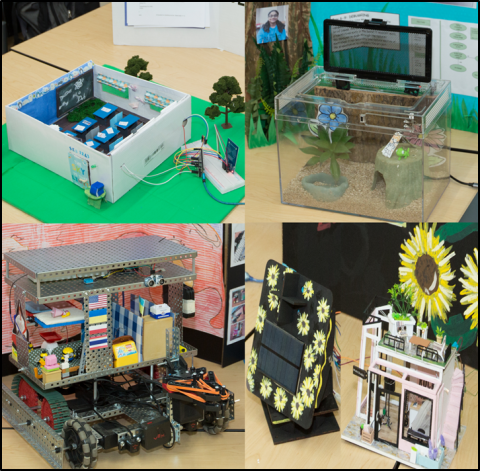Body
Image

UNLV ITEST Project: Engaging Secondary Female Students in Ubiquitous Intelligence and Computing
The major objectives of this Engaging Girls in Ubiquitous Intelligence and Computing (GUIC) project are to: 1) enhance secondary female students’ academic self-concepts in computing and engineering fields through a constructivist learning environment; 2) enhance secondary female students’ knowledge, skills, and interests in these fields; 3) increase the number of secondary female students’ participating in STEM competitions; and 4) investigate the factors that influence female students’ career choices in STEM and ICT fields. The major activities in each year include: 1) five-week GUIC Summer Camp to engage secondary female students in learning Arduino/C++ Programming and developing engineering projects, 2) one-week Spring Mentor Training Workshop to train teacher and UNLV student mentors, and 3) two-day Fall STEM Competition Workshop to promote STEM teachers to organize teams to participate in STEM competitions. From 2021 to 2023, we have engaged total 122 secondary female students from 53 CCSD middle & high schools (including 21 Title 1 schools) in GUIC Summer Camp. These students took three-week courses in Arduino & IoT and robotics designs then developed engineering projects in two weeks in a tiered team co-mentored by STEM teachers and UNLV engineering students. Through the Mentor Training Workshop, we have trained total 46 mentors (including 21 teacher mentors). The STEM Competition Workshop engaged total 22 STEM teachers. Total 27 STEM competition teams were supported.
Pillar 1: Innovative Use of Technologies in Learning and Teaching
During the GUIC Summer Camp, students will take courses in Arduino & IoT and robotic designs and develop engineering projects with emphasis on hands-on experience. Each student is provided with one Arduino training kit (consisting of Arduino Uno board & ESP32 board, sensors, breadboard, LEDs & resistors, and wires) so they can build and test the circuits. The engineering projects address different aspects of ubiquitous intelligence and computing fields targeting smart city and environmental applications.
Pillar 2: Partnerships for Career and Workforce Preparation.
We partnered with Clark County School District (CCSD) in recruiting secondary female students and teacher mentors. Several engineering projects were developed through partnership with one local startup company. During the summer camp, we invited two female faculty to give engineering seminars and took students to visit 3~4 research labs at UNLV. We also partnered with STEM competition organizers in publicizing opportunities and local professional society & industry in supporting STEM competition teams.
Pillar 3: Strategies for Equity in STEM Education
We sent out flyers to all CCSD middle and high schools and reached out to principals and teachers at Title 1 schools to recruit female students and mentors. Out of the 122 secondary female students, 44% of them were African American and Hispanic students. And 28.3% of the 46 mentors were from underrepresented minority group. Around 30% of the participants in sponsored STEM competition teams were female. Students were greatly inspired by the STEM journeys shared by female faculty, scientists, and their mentors.

Discipline(s)
Computer and informational technology science
Engineering
Target Gradespan(s)
Middle school (6-8)
High school (9-12)
Target Participant(s)
Youth / students
Girls (or women)
Project Setting(s)
Informal Education
Category
Exploratory